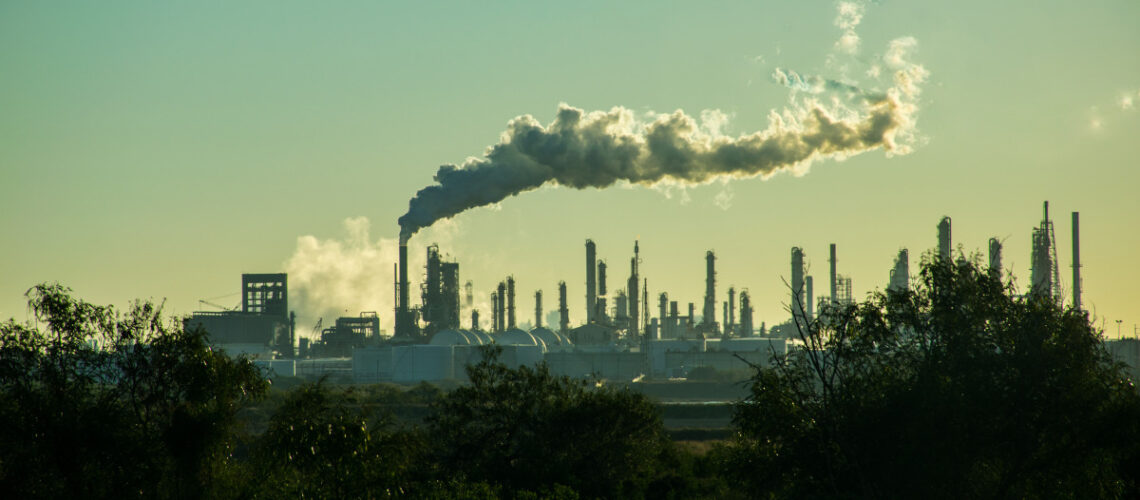As the specter of climate change looms large on the global stage, its economic ramifications are increasingly evident. This blog post delves into the profound economic impacts of climate change, scrutinizing its effects on various sectors, from agriculture to infrastructure. By assessing the challenges posed by climate change, this article aims to underscore the urgent need for sustainable practices and policies that can mitigate its adverse effects on economic growth and stability.
Agriculture and Food Security
The economic consequences of climate change on agriculture reverberate far beyond the farm fields. As erratic weather patterns become increasingly common, the predictability of traditional growing seasons wanes. Prolonged droughts and scorching heatwaves disrupt crop growth, leading to reduced yields and financial hardships for farmers. The implications ripple throughout the food supply chain, from reduced crop availability to increased production costs.
Natural disasters exacerbate these challenges. Hurricanes and floods can wreak havoc on agricultural communities, causing extensive damage to crops, infrastructure, and equipment. The financial toll of recovery and rebuilding can be staggering, amplifying the economic vulnerability of these communities.
Moreover, food security, a fundamental component of economic stability, is at risk. Diminished crop yields and disrupted supply chains can lead to food scarcity and price volatility. Vulnerable populations are disproportionately affected by these shifts, exacerbating socioeconomic disparities.
To mitigate these economic impacts, it is imperative to invest in climate-resilient agricultural practices, including drought-resistant crops, improved irrigation systems, and disaster preparedness measures. Such investments not only bolster the resilience of farmers and agricultural communities but also contribute to broader economic stability and food security.
Energy Sector and Transition to Renewables
The energy sector is at the forefront of the battle against climate change. Transitioning from fossil fuels to renewable energy sources is not only an environmental imperative but also an economic necessity. Investments in renewable energy technologies spur innovation and create job opportunities. However, the shift is not without its economic challenges, particularly for regions heavily reliant on fossil fuel industries. Striking a balance between environmental sustainability and economic stability is paramount in this transition.
Infrastructure Vulnerability and Resilience
The increasing frequency and intensity of extreme weather events pose a significant threat to infrastructure. Coastal regions face heightened risks from rising sea levels and more frequent storms, requiring substantial investments in resilient infrastructure. Moreover, inland areas are not immune, as they grapple with the impacts of droughts, heatwaves, and wildfires. Failing to address these vulnerabilities not only leads to immediate economic losses but also sets the stage for long-term economic stagnation.
Healthcare Costs and Public Health
The economic toll of climate change on healthcare systems is profound and multifaceted. Rising temperatures provide a conducive environment for the proliferation of vector-borne diseases like malaria and dengue fever, leading to increased healthcare demand. Additionally, the frequency and intensity of extreme weather events strain emergency response resources, often resulting in higher healthcare costs.
Treating the health impacts of climate change, from heat-related illnesses to injuries from natural disasters, places a substantial burden on healthcare budgets. The costs encompass not only medical treatment but also preventive measures and public health initiatives.
Prioritizing climate resilience in public health planning is paramount. This involves proactive strategies to anticipate and mitigate the health impacts of climate change. This may include early warning systems for extreme weather events, improved vector control measures, and targeted health education and outreach efforts. By integrating climate resilience into public health policies, communities can not only protect the health and well-being of their populations but also alleviate the economic strain on healthcare systems.
Tourism and Natural Habitats
The symbiotic relationship between tourism and natural habitats underscores the profound economic impacts of climate change on this industry. Coral reefs, teeming with vibrant marine life, have long been a magnet for divers and snorkelers, but the escalating phenomenon of coral bleaching threatens their allure. Similarly, ski resorts, nestled in snowy mountain regions, face dwindling snowfall and shorter winter seasons due to rising temperatures. This not only dampens the skiing experience but also undermines the economic vitality of these destinations.
Furthermore, the degradation of natural habitats, whether through deforestation, habitat loss, or pollution, erodes the very essence of what makes a destination appealing to tourists. Witnessing the decline of pristine landscapes and unique wildlife diminishes the allure of these destinations, ultimately leading to a decline in visitor numbers.
For communities reliant on tourism, this decline translates directly into revenue losses, impacting livelihoods and local economies. Restaurants, hotels, tour operators, and a host of other businesses that form the backbone of tourism-dependent communities are left grappling with the economic fallout.
Sustainable tourism practices become imperative in this context. Investing in the preservation and restoration of natural habitats not only safeguards the biodiversity and ecological integrity of these areas but also ensures the long-term economic viability of tourism. By striking a balance between economic interests and environmental conservation, communities can build a resilient and sustainable tourism industry that thrives in the face of climate change challenges.
The Economy and Climate Change
The economic impacts of climate change are vast and multifaceted, permeating various sectors of society. While the challenges are formidable, they also present an opportunity for innovation, adaptation, and sustainable growth. By implementing policies and practices that prioritize environmental sustainability, nations can not only mitigate the economic risks posed by climate change but also pave the way for a more resilient and prosperous future. The urgency of this endeavor cannot be overstated, as the economic well-being of communities worldwide hinges on the collective response to this global challenge.

